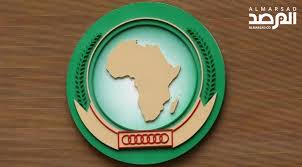
Morocco denounces “cynical interventionism” in Libyan domestic affairs
 Morocco has denounced, Thursday in Brazzaville, the “cynical interventionism” of certain parties in Libyan domestic affairs, to the detriment of the higher interest of the Libyan people, underscoring that the solution to the conflict cannot be reached militarily, but through a political, inclusive, and structured dialogue.
Morocco has denounced, Thursday in Brazzaville, the “cynical interventionism” of certain parties in Libyan domestic affairs, to the detriment of the higher interest of the Libyan people, underscoring that the solution to the conflict cannot be reached militarily, but through a political, inclusive, and structured dialogue.
The situation in the North African country is going out of control to the detriment of all, and especially to the detriment of the higher interest of the brotherly Libyan people, said Foreign Minister Nasser Bourita who represented King Mohammed VI at the 8th meeting of the African Union High Level Committee on Libya.
“What thrives in this chaos is only the scheme of those who find an opportunity to exist in such a place, by interfering in a region which is already facing many challenges”, he said. Morocco “denounces in the strongest terms this cynical interventionism, of another age, of another era, which sows division and lives on it, which pretends to bridge the divide, but actively widens it.”
Without this interventionism, “Libya is capable of healing itself,” stressed Bourita.
The Foreign Minister then outlined Morocco’s standpoint, which deems that so-called ready-made solutions cannot solve the Libyan problem and that no solution can be achieved without a through knowledge of the realities, differences, and complexities of the Libyan context.”
He warned that conflict-torn Libya is neither a field of experimentation, nor an arena for struggles which are unrelated to the interest of the Libyan people.
Bourita insisted that that the settlement of the crisis in Libya cannot be military, but should be sought through a global political solution, or “it will not be reached”.
“Today, Morocco reiterates its call to return to a political dialogue that is inclusive, structured and without taboos”, he said.
Morocco also reiterates its call to support the UN efforts and the action by special representative and head of the United Nations Support Mission in Libya Ghassan Salamé, Bourita added.
However, he went on to say, Africa’s contribution to these efforts is fundamental to help Libya recover its pan-African role, and prevent a spill out of the conflict.
The Moroccan Foreign Minister outlined that the Skhirat political agreement of December 17, 2015, is still a sufficiently flexible reference to face the new realities. “A solution which puts an end not only to open hostilities, but also to outdated rivalries, and helps unify the Libyan military forces.”
Bourita reiterated Morocco’s commitment to join the current dynamic and its support to the Libyan parties on the path of dialogue and national reconciliation. “Morocco has no agenda in the Libyan conflict. Morocco sincerely regrets the protraction of the crisis and is prompted by a disinterested determination to see it progress towards its resolution”.
Today more than ever, the Libyan brothers have the historical responsibility to confront their visions and their will to rebuild Libya, rather than confronting their firepower and capacity to harm each other. “Africa can help bring back that serenity, hampered by overlapping agendas that are foreign to the Libyan people and their higher interest,” the minister concluded.
In his opening speech, the president of Congo, Denis Sassou Nguesso, who doubles as chairman of the African Union High Level Committee on Libya, called on the international community to respect the UN arms embargo in that country.
“The scrupulous respect of the embargo decreed by the United Nations in Libya is among the challenges to be met to bring the country out of the crisis,” Sassou Nguesso said, calling for “strict respect for non-interference in Libya’s internal affairs.”
He also announced that the AU is planning to organize, in the course of 2020, an inclusive inter-Libyan reconciliation forum prior to free, credible and inclusive presidential, legislative and local elections.
High Level Committee is set to establish the preparatory committee and the facilitation committee, as well as the definition of the modalities for organizing the reconciliation forum.
